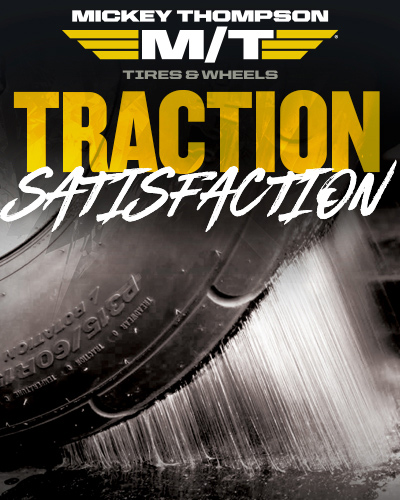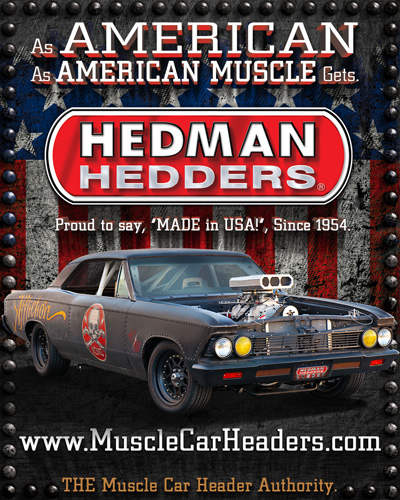JON ASHER - REMEMBERING TWO SUPERSTARS OF THE MATCH RACE ERA
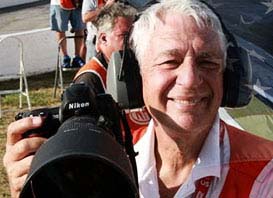
I met Don Schumacher 57 years ago and honestly, wasn’t impressed. I thought him a punk of the first order – and I wasn’t alone. At the time Chicago was, in many respects, the center of Funny Car match racing, and Schumacher wasn’t immediately “accepted” by the touring stars of the day. His brash personality, barely hidden arrogance and frequent references to his family’s money didn’t endear him to his peers, who were mostly up-by-their-bootstraps racers simply trying to survive in an ever-evolving world of drag racing.
At about the same time I met another Funny Car driver – Paula Murphy. The differences in their personalities were too numerous to elucidate, but where Don might run roughshod over people, Paula met them with a ready smile and, more often than not, a salient response for any guy foolish enough to try and play the chauvinist card.
Ironically enough, it was Schumacher who largely changed over the years, becoming a championship driver after coming to the realization that his antics weren’t winning him trophies – or friends. Paula never changed because she was a fully-formed individual 50-plus years ago and remained the same until her death at 95. Don, however, was cut down by cancer in his 79th year.
As Schumacher’s professionalism grew so did the quality of his cars, mechanics and sponsorships. While he could “afford” to run the NHRA and sometimes IHRA or even AHRA national events, Paula’s income derived from her numerous match race appearances where her STP-backed Plymouth often outperformed her male rivals. Acknowledging that this was an era when women were expected to remain silent, Paula broke the mold by never conceding an inch to her rivals. Worth mentioning, I figure, is the fact that her mechanic was a hulking bruiser named “Fat Jack” Bynum, who’s been gone a long time. The point is that Paula was free to say whatever she felt like saying because Jack always had her back.
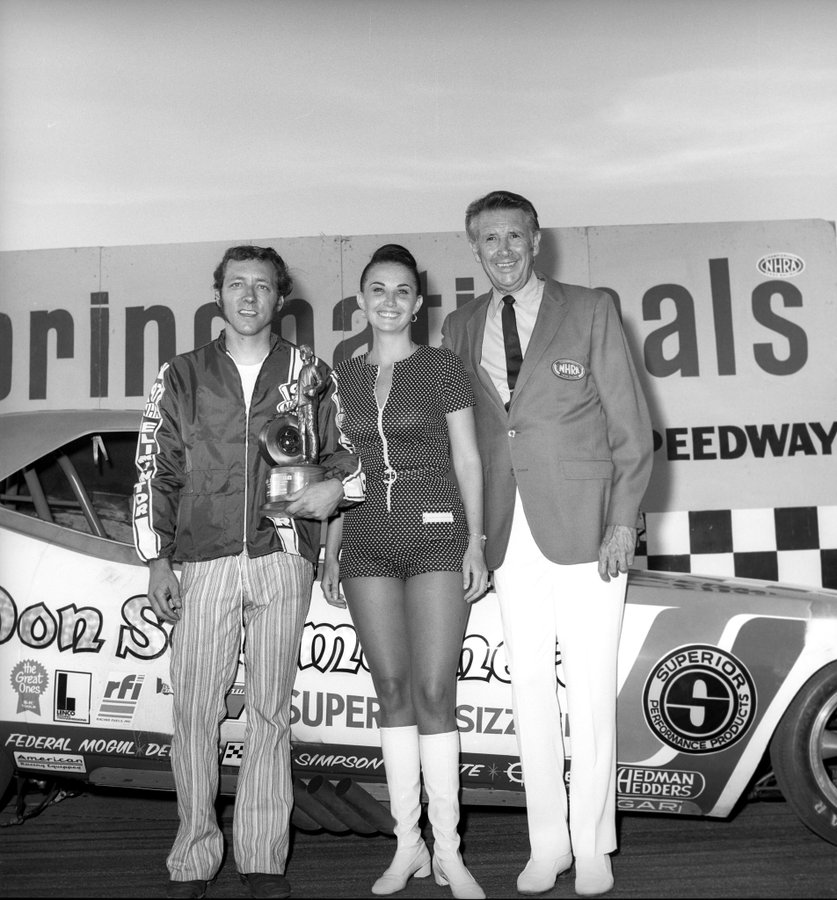 One of the things about history – any history – is that things change as the storyteller gets older. Facts may become a bit misty with the passage of time, and a good race becomes an all-timer, or a two-out-of-three match race at U.S. 30 Dragstrip takes on the importance of the U.S. Nationals. I’m throwing that in as a kind-of warning. The stories I tell here are as I remember them, and if someone offers a correction or complaint, you won’t hear a peep of protest out of me.
One of the things about history – any history – is that things change as the storyteller gets older. Facts may become a bit misty with the passage of time, and a good race becomes an all-timer, or a two-out-of-three match race at U.S. 30 Dragstrip takes on the importance of the U.S. Nationals. I’m throwing that in as a kind-of warning. The stories I tell here are as I remember them, and if someone offers a correction or complaint, you won’t hear a peep of protest out of me.
In some respects Paula was probably a better drag racing business person than Don was back in those days. The only national events Paula competed in were those where she was paid a hefty appearance fee, whereas in most instances Don was there just hoping to win, regardless of the cost.
Back in the late 60s and early 70s the single most ignominious, humiliating thing that could happen to a rough, tough Funny Car driver was to lose even a single round of a match race, much less a round of racing in a national event, to “a girl.” Paula loved beating the boys if for no other reason than it set so many of them emotionally on fire. I watched Don race against her numerous times, and while he usually won, when he didn’t he might mumble a curse or two under his breath, but he always faced Paula with a smile. And ya know what, that worked to his advantage, ‘cause most of the guys who raced against her were unhappy whether winning or losing. I mean, you couldn’t possibly win in those deals. If you got the win light it was “So what? Big deal, you beat a girl!” And if you lost… Oh, man, the insults might last days or even weeks. In fact, there was a time when a list of “Reasons Why I Lost To A Girl” were circulated through the ranks, and nobody wanted their names added to a list that included gems like “My goggles fogged up,” or “I couldn’t see the Tree ‘cause of all the photographer’s flashes.”
Paula may have stopped drag racing, but she never stopped driving fast cars –very fast cars. With the cooperation of NASCAR and Plymouth she drove around Daytona International Speedway faster than any woman before or since, and then planted her foot firmly on the throttle for numerous impressive passes on the dry lakes of Bonneville.
After winning the U.S. Nationals in 1970 Don’s interest in driving seemed to wane, and a few years later he quit completely, only making an annual visit to a few races, usually with his close friend Ron O’Donnell, another Chicago F/C driver. I have no way of knowing if this is true, but I recall a conversation with Don a year after his victory at Indy , when I asked him what winning had meant to him financially. He sighed audibly before responding, saying “I booked about 10 more match races this year, and I got about $40,000 more in decal money, but that was it.” The disappointment was evident in his voice. I think he believed winning Indy would be a major league game-changer, but it wasn’t on other than the personal level of having won drag racing’s most important event.
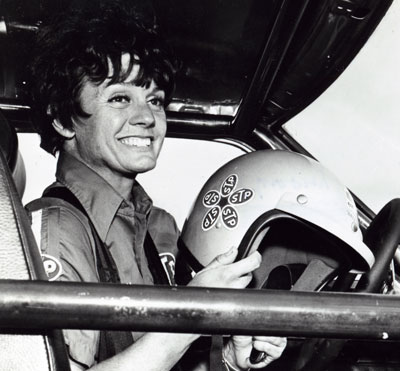 As Paula was spending her twilight years far from the national spotlight, but still “performing” by giving popular corporate talks to struggling executives, Don was re-launching himself into drag racing with a team ownership operation that will probably never be matched. You know the basic numbers, which speak volumes – more than 200 national event wins by his drivers, too many championships to list, a manufacturing facility that’s set the tone for the entire sport and more. His drivers list includes the leading lights of the late 90s through the second decade of this century, individuals like Antron Brown, Matt Hagan, Ron Capps, his son, Tony, Angelle Sampay, Jack Beckman, Tommy Johnson, Jr. and more.
As Paula was spending her twilight years far from the national spotlight, but still “performing” by giving popular corporate talks to struggling executives, Don was re-launching himself into drag racing with a team ownership operation that will probably never be matched. You know the basic numbers, which speak volumes – more than 200 national event wins by his drivers, too many championships to list, a manufacturing facility that’s set the tone for the entire sport and more. His drivers list includes the leading lights of the late 90s through the second decade of this century, individuals like Antron Brown, Matt Hagan, Ron Capps, his son, Tony, Angelle Sampay, Jack Beckman, Tommy Johnson, Jr. and more.
While they may not blurt it out in every interview, every woman who dons a firesuit and climbs behind the wheel of anything heading down-track owes a major debt of gratitude to Paula Murphy, Shirley Muldowney and even Della Wood, for without their pioneering efforts they might still be facing racing officials who once proclaimed, “Ya know how much bad publicity we get when someone crashes? Well, imagine if it was a girl!”
In Don’s case his legacy is the way his actions as both a driver and team owner “forced” drag racing to, well, kinda grow up. His innovative approach to match racing with a three-car gang that included himself, Raymond Beadle and Bobby Rowe in matching and immaculate Stardust machines may have been exceeded only by the things he put together in the last two or three decades.
Will we ever see the likes of Paula and Don again? Take a look around. They’re already here. Their names are Brittany, Erica and Camrie. They’re guys like Torrence, Prock and Bode –and that’s just scratching the surface. Yes, drag racing will produce more superstar drivers and superstar team owners. It’s inevitable. It’s the way things are and are meant to be. But that doesn’t mean we’ll ever forget the likes of Ms. Murphy and, for lack of a better handle, The Shoe.
TEXT
TWITTER EMBED






























